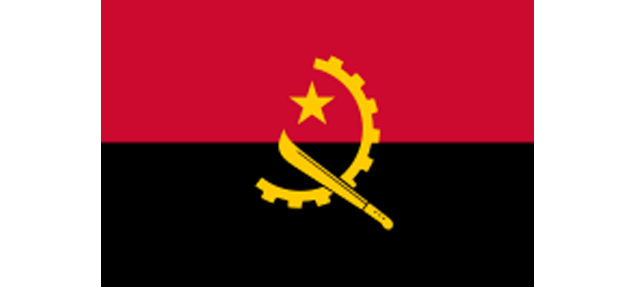Angola is once again a pole of attraction for Spanish investments and products due to the socio-political stability of the country and the changes that are foreseen in the horizon of its economy. That is why our machinery, equipment, agricultural and food products, transport equipment and vehicles, chemical products, cast iron or steel manufactures, pharmaceutical products, telecommunications, renewables, information and communication technology and services of all kinds, have in Angola a destination of maximum interest.
From Southern Africa, Angola sends unmistakable signals of economic vitality and strength, as well as institutional stability. Its image and reputation distorted by the fall in oil prices (2015 and 2016) and corruption, is recomposed at a good pace by the stabilization of commodity prices and the arrival of President João Lourenço. His landing in the Government has been a powerful driver that has resulted in the devaluation of the kwanza and fiscal consolidation. Steps have also been taken towards the reform of public services, the reduction of subsidies and the renewal of senior executives in some state companies, which gradually open their doors to foreign investment.
In the last year and a half, the Presidency of Lourenço has focused its efforts on macroeconomic stabilization and the normalization of the exchange market, in order to reduce the perverse effects of inflation that, according to the IMF, could be reduced in 2019 to 15.8%. The stabilization of hydrocarbon prices, together with the increase in domestic demand and the growth of national production, point to a promising future for the Angolan economy, foreseeing a 2.3% GDP growth this year and 2.8% in 2020, according to data from Focus Economics Consensus Forecast.
The concern of investors and foreign operators in Angola is decreasing in the face of a gradual advance towards a floating exchange rate, of nominal monetary anchoring, and referenced in the market. The National Bank of Angola (BNA) has promoted small monthly devaluations to facilitate exchange control and has increased transparency in its allocations, through regular auctions and efficient information.
Likewise, the new law on foreign investment, competition and fight against monopolies (Private Investment Law and Competition Law), has reduced obstacles and raised the guarantees of greater legal protection for foreign investors, which are allowed to repatriate capital. For a number of months now, foreign operators and investors have a special visa in terms of entry and stay in the country, which makes Angola a more attractive economic destination. The attention and attraction of foreign oil companies has also been maintained by sending clear messages about their continuity and the normality of their operations.
The third president of the Republic of Angola, since its independence in 1975, has reached milestones that a priori seemed to be insurmountable challenges after four decades (38 years) of President José Eduardo dos Santos. In his first year in office, João Lourenço has not only laid the foundations to stabilize the country’s economy, but he has also taken the reins of his party, the MPLA (Popular Movement for the Liberation of Angola, which rules the country since independence), and has gained control over key state resources, such as the Armed Forces or intelligence services.
Angola’s track-record since the end of the war in 2002 has been remarkable and important advances have been made in the economic and political spheres. However, the country must face major development challenges, including the reduction of oil dependency and the diversification of the economy, the reconstruction of infrastructures, the increase of institutional capacity and the improvement of governance systems and the public finance management. Last but not least, attaining higher indicators of human development and living conditions of the population becomes most necessary.
The objective of increasing the standard of living of the Angolans has become a national challenge and today the country seeks to climb from 113th place in the 196 countries per capita GDP ranking, to positions more in line with its potential and resources. This challenge is a commitment of the Government that is shared by the whole of civil society. The need to diversify the economy has been internalized, while being aware that investing in talent and training this very young population is essential, as it is to develop the agricultural, industrial and service sectors, in order to increase production and reduce external dependence, which rises to 90% for consumer goods and food products.
The change of direction of João Lourenço within the MPLA and the changes in his political bureau were the culmination of an apparently “gesture politics” that materialized in the replacement of many political actors and the chain dismissals of heads of institutions and public companies. The control of the MPLA and a series of political and technical decisions have made the fight against corruption plausible from the beginning of the presidential mandate.
Corruption in Angola, and some well-known cases such as Operation Fizz, which disturbed relations with Portugal, have been analyzed without reservation by the President in his frequent trips abroad, where he has not only drawn the governing plan for his mandate, but he has also reaffirmed his commitment in the fight against corruption.
The relaunching of Angola’s foreign policy and the search for new alliances with traditional partners (Portugal, China, Russia and Brazil) and with Europe (France, Germany, Belgium, Portugal or the Commission and the European Parliament) have made it possible for Angola to obtain an additional 10,000 million euros of foreign investment. These resources will be used for creating infrastructures, goods and services that will help raise the population’s standard of living and attract foreign capital and know-how with the aim of recovering the path of growth and aligning the country on a global economy context.









